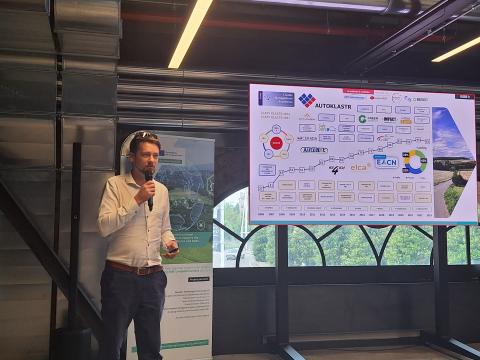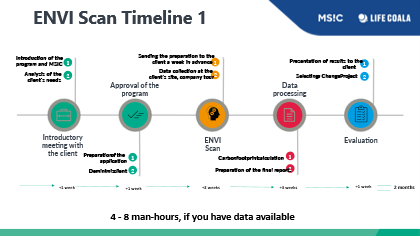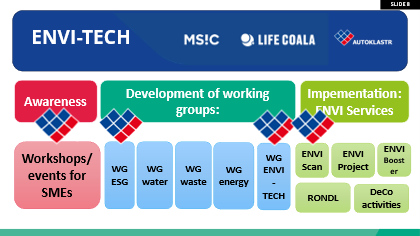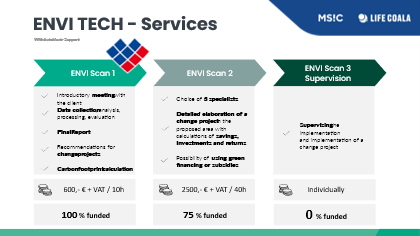ENVI Scan
Problem Addressed and Context:
The increasing focus on sustainability and environmental responsibility has led to the introduction of mandatory non-financial reporting requirements, known as ESG (Environmental, Social, and Governance) reporting, especially in the automotive industry. Companies must now demonstrate their impact on the environment, society, and governance practices. Within the 'E' (Environmental) component, specific areas of concern include water management, energy efficiency, and waste management. Aligning operations with these new standards presents challenges for businesses, requiring comprehensive assessments and actionable solutions to comply with regulations, optimize operations, and reduce costs. To support companies in the region, the Moravian-Silesian Innovation Centre, in collaboration with Autoklastr, has developed and implemented several services.
Implementation and Objectives:
Our practice involves conducting a detailed ENVI Scan of your company's operations and administrative processes. This scan includes:
Data Collection: Gathering comprehensive data on water usage, energy consumption, and waste generation across all operational and administrative segments of the company.
Data Analysis: Utilizing advanced analytical tools to evaluate the collected data, identifying inefficiencies, and pinpointing areas with the greatest potential for improvement.
Solution Development: Based on the analysis, we recommend tailored solutions designed to enhance resource efficiency, reduce waste, and lower energy consumption. These solutions not only aim at achieving regulatory compliance but also at driving cost savings and operational efficiencies. One example is image from report as a main image of the best practise.
Implementation Support: Assisting in the practical implementation of the recommended solutions in final report, ensuring that changes are seamlessly integrated into the company’s existing processes. Offering support for next phase of service which is called ENVI Project and has value of 2500€ and 75% is funded.
Stakeholders and Beneficiaries:
Internal Stakeholders:
Key internal stakeholders include company management, sustainability officers, operational managers, and employees.
External Stakeholders: External stakeholders encompass regulatory bodies, clusters, customers, investors, and the community.
Broader Environmental Impact: The ultimate beneficiary of this practice is the environment itself. By promoting efficient water usage, energy conservation, and effective waste management, our practice contributes to the broader goals of SDGs.




